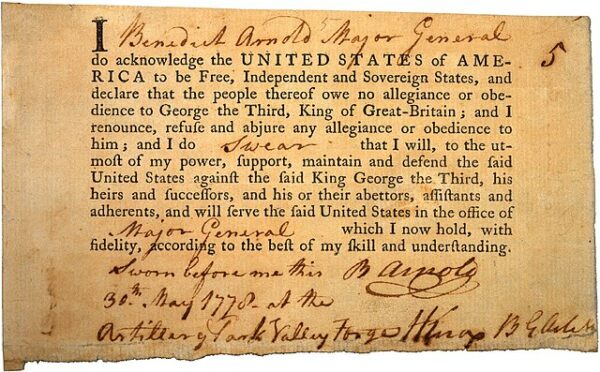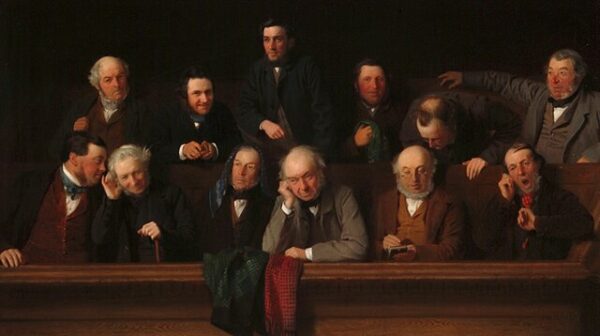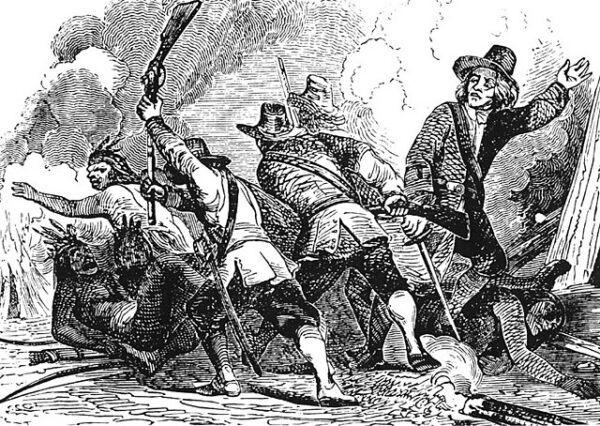During September 1780, one of America’s earliest heroes turned traitor. Benedict Arnold’s treason stands as one of the most infamous acts of betrayal in American history, forever etched in the annals of the American Revolutionary War. Arnold, a prominent military leader in the Continental Army, committed his treacherous act on September 21, conspiring with British Major John André to deliver the American fort at West Point, New York, into British hands.
“Arnold was born into a well-respected family in Norwich, Connecticut, on January 14, 1741. He apprenticed with an apothecary and was a member of the militia during the French and Indian War (1754-1763). He later became a successful trader and joined the Continental Army when the Revolutionary War broke out between Great Britain and its 13 American colonies in 1775. When the war ended in 1783, the colonies had won their independence from Britain and formed a new nation, the United States.
During the war, Benedict Arnold proved himself a brave and skillful leader, helping Ethan Allen’s troops capture Fort Ticonderoga in 1775 and then participating in the unsuccessful attack on British Quebec later that year, which earned him a promotion to brigadier general. Arnold distinguished himself in campaigns at Lake Champlain, Ridgefield and Saratoga, and gained the support of George Washington. However, Arnold had enemies within the military and in 1777, five men of lesser rank were promoted over him. Over the course of the next few years, Arnold married for a second time and he and his new wife lived a lavish lifestyle in Philadelphia, accumulating substantial debt. The debt and the resentment Arnold felt over not being promoted faster were motivating factors in his choice to become a turncoat,” explains The History Channel
Arnold’s treason had immediate and profound effects for the American cause. His plan to surrender West Point, a strategically vital stronghold on the Hudson River, threatened to sever the American forces in half and jeopardize the entire Revolutionary effort, but providence stopped the plot when it was foiled after Americans captured André as he carried the incriminating documents, causing Arnold to flee to the British lines.
Although the fort remained in American hands, the shockwaves of Arnold’s betrayal eroded trust within the Continental Army. George Washington, in particular, felt the sting of betrayal from a man he had once considered a close friend and ally.
The consequences of Arnold’s treason extended beyond the battlefield. His actions left a lasting stain on his name, and “Benedict Arnold” became synonymous with treachery in American culture. His attempt to switch sides not only damaged his own reputation but also reinforced the loyalty and commitment of other American officers and soldiers to the cause of independence. The revelation of Arnold’s betrayal served as a cautionary tale for future generations, emphasizing the importance of steadfastness and honor in times of crisis.
In British eyes, Arnold’s treason was seen as a coup. They gained a capable military leader with inside knowledge of American strategies and positions. Although he did not achieve the decisive victories they had hoped for, Arnold’s service in the British army further exacerbated the animosity between the two sides.
After the war, Arnold settled in England, where he hoped to find financial stability and recognition for his loyalty to the British crown. Despite some initial support from British officials, he struggled to attain the rewards and status he had anticipated. Arnold’s post-war years were marked by a series of failed business ventures, including attempts to engage in trade and manufacturing. His financial situation deteriorated, and he faced mounting debts.
Arnold’s post-war life was marred by his tarnished reputation on both sides of the Atlantic. He remained a controversial figure, viewed as a traitor by Americans and not fully embraced by the British. He died in 1801 in London.






